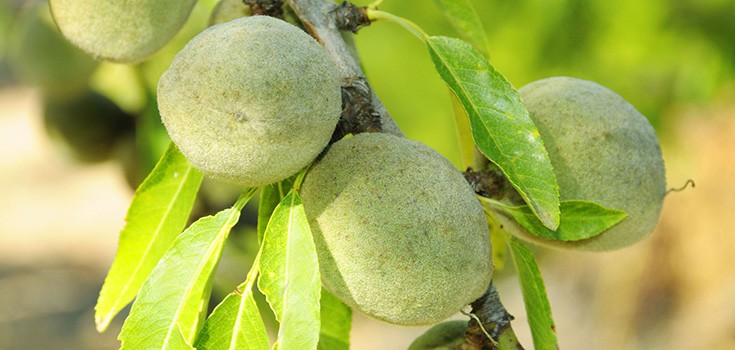Oil from Wild Almond Trees Shown to Combat Diabetes and Obesity

Researchers from the Missouri University of Science and Technology have found a promising new weapon in the fight against obesity and type II diabetes. Sterculic oil, an extract from the seeds of Sterculia foetida, also known as the ‘wild almond tree,’ may help combat belly fat and insulin resistance by re-sensitizing insulin receptors.
Sterculia Foetida and the Prevention of Diabetes
Type II diabetes, where in cells stop responding to insulin and therefore fail to store glucose and regulate blood sugar appropriately, accounts for 90- 95% of all cases of diabetes, and affects 25.8 million people, 8.3 percent of the U.S. population. It is a major cause of heart disease and stroke and the seventh leading cause of death in the U.S. The amount of children with diabetes or pre-diabetes have increased dramatically in the past decade, and while, as the article cited indicates, it is not necessary to be overweight to develop insulin resistance, next to age, obesity is considered the largest risk factor for the development of diabetes.
Thus, sterculic oil’s ability to affect certain gut microorganisms that are associated with insulin-resistance answers a great need for a natural means of improving glucose-tolerance and insulin sensitivity. Certainly, appropriate diet and exercise remain the most essential part of managing obesity and diabetes, but sterculic acid has great potential as a valuable tool in aiding these efforts. Research also shows that magnesium helps prevent diabetes, along with turmeric and Vitamin D – allowing for many options for diabetes prevention.
Sherya Gouch, a Ph.D. student in Environmental Engineering at the Missouri University of Science and Technology reports that adding the extract from the seeds of sterculia foetida to the diets of obese mice produced a “statistically significant improvement in glucose tolerance and insulin sensitivity in obese mice,” without adversely affecting lean mice fed the same diet.
In a prior study, Dr. James Perfield, professor at the University of Missouri, found that sterculic oil effectively suppresed stearoyl-CoA desaturase 1 (SCD1), a bodily enzyme associated with insulin resistance. In his study, rats predisposed to obesity were fed a small does of sterculic acid daily along with their regular food for thirteen weeks. A control group received no sterculic acid. Both groups eventually became obsese, but the group receiving the sterculic acid showed a 50% improvement in insulin resistance. The dose used in the study was surprisingly moderate, equivalent to about 3 grams of oil per day in a 250 lb human, an amount easily incorporated into a food or drink.
The Missouri University of Science and Technology study which further demonstrated sterculic acid’s efficacy, as well as its apparent lack of negative side effects, was presented at the annual meeting of the American Society for Microbiology held in San Francisco last June. Researchers- not to mention, potential beneficiaries- continue to be hopeful that these new insights will pave the way for natural, nutrition-based supplements to combat diabetes.
Additional Sources:
National Diabetes Statistics, National Diabetes Information Clearinghouse

Thank you for the great article. There is a lot of great information in here, whether you have the illness already or don't want to get it.
Very interesting. I am unclear though is the oil considered a cause of the obesity as well?